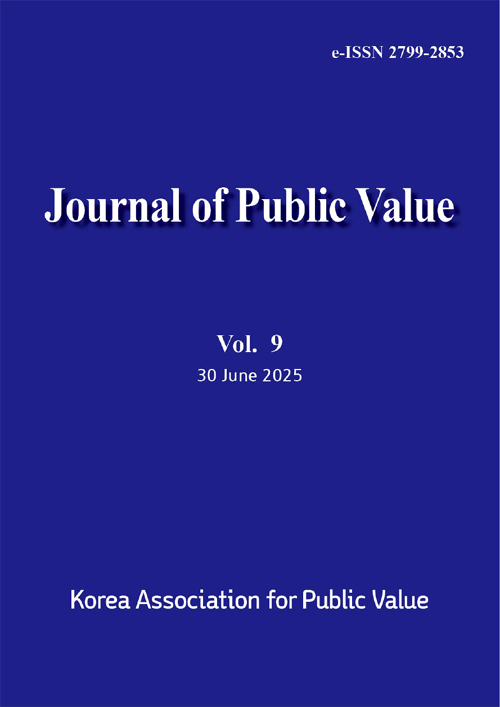The Unexchangeable Value of Humanity in Artificial Intelligence Ethics: Uniqueness of Memory Mechanisms and Physical Identity
이용수 18
- 영문명
- 발행기관
- 한국공공가치학회
- 저자명
- Minjune Kim Angela Onyu Lee
- 간행물 정보
- 『Journal of Public Value』Vol. 9, 155~166쪽, 전체 12쪽
- 주제분류
- 사회과학 > 사회복지학
- 파일형태
- 발행일자
- 2025.06.30
구매일시로부터 72시간 이내에 다운로드 가능합니다.
이 학술논문 정보는 (주)교보문고와 각 발행기관 사이에 저작물 이용 계약이 체결된 것으로, 교보문고를 통해 제공되고 있습니다.

국문 초록
영문 초록
목차
해당간행물 수록 논문
- Journal of Public Vol. 9 Contents
- Rise of the Rest: It takes Two Tier-Twos to Tango
- Morocco’s African Foreign Policy: The North Africa Hegemon or Cooperation Partner?
- The Public Value of Psychological Capital: Evidence from Skilled Migrant Lecturers in South Korea
- Public Value Crisis in the Information Age: Based on the Image of Consumer Heroes
- Applying Textual Embeddings for Numerical Data Clustering
- Making Good Citizens from the Authoritarian Period to the Reform Era in Indonesia
- Exploring the Potential Expansion of Korean Higher Education for Lifelong Learning in Morocco
- Remembering our Dead: The Practice of Death Veneration in the Philippines and South Korea
- Developing a conceptual framework of ethical leadership in research process for graduate students in Thailand
- The Unexchangeable Value of Humanity in Artificial Intelligence Ethics: Uniqueness of Memory Mechanisms and Physical Identity
- Artificial Intelligence (AI)-based Autonomous Weapons (AWs), its Ethical Task, and its implication to Moroccan Military Innovation
- A Review of Curricular of the Military Academies in the Republic of Korea
- A Comparative Analysis of Embedding Techniques and Clustering Algorithms on Benchmark Datasets
- Ethical Global Citizenship Education for the Common Good
- Developing Character Values of Nationalism and Integrity Through the Work Programs of the Muhammadiyah Autonomous Organization in Indonesia
참고문헌
- Journal of Physics Communications
- IEEE Transactions on Pattern Analysis and Machine Intelligence
- Journal of Neural Engineering
- Trends in Cognitive Sciences
- Hippocampus
- Journal of Physics Communications
- Journal of Consciousness Studies
- Journal of the Royal Society Interface
- Journal of Verbal Learning and Verbal Behavior
- Progress in Neurobiology
- Proceedings of the Royal Society of London, Series A, Mathematical and Physical Sciences
- Nature Neuroscience
- Hippocampus
- Annals of Physics
- Nature
- Nature Reviews Neuroscience
- Trends in Cognitive Sciences
- Nature Reviews Neuroscience
- Frontiers in Artificial Intelligence
- Nature Neuroscience
- Physical Review E
- Journal of Consciousness Studies
- Physics of Life Reviews
- Neuron
- Zeitschrift für Physik
- Neural Computation
- BioSystems
- Journal of Physics Communications
- Nature
- Science
- Science
- Nature
- Learning & Memory
- Psychological Review
- Annual Review of Neuroscience
- Journal of Medical Internet Research
- Quantum Reports
- Cambridge University Press
- Psychological Review
- Psychological Review
- Nature Reviews Neuroscience
- Science
- Annual Review of Psychology
- Reviews of Modern Physics
관련논문
사회과학 > 사회복지학분야 BEST
- 사회복지의 법적 실천에 관한 탐색적 연구
- 한국과 미국의 사회복지 윤리강령 비교연구 : 비밀보장, 이중관계, 문화적 다양성, 결함이 있는 동료를 중심으로
- 청년실업의 원인과 해결방안에 관한 연구
사회과학 > 사회복지학분야 NEW
- 한국가족복지학 제30권 제3호 목차
- 어린이집 교사 대 아동 비율 개선 이후 변화에 대한 보육교직원의 인식
- 특성별 지역아동센터 지원사업 현황 및 개선방안 - FGI 조사를 통한 관계자 의견 탐색
최근 이용한 논문
신규가입 혜택 지급이 완료 되었습니다.
바로 사용 가능한 교보e캐시 1,000원 (유효기간 7일)
지금 바로 교보eBook의 다양한 콘텐츠를 이용해 보세요!



